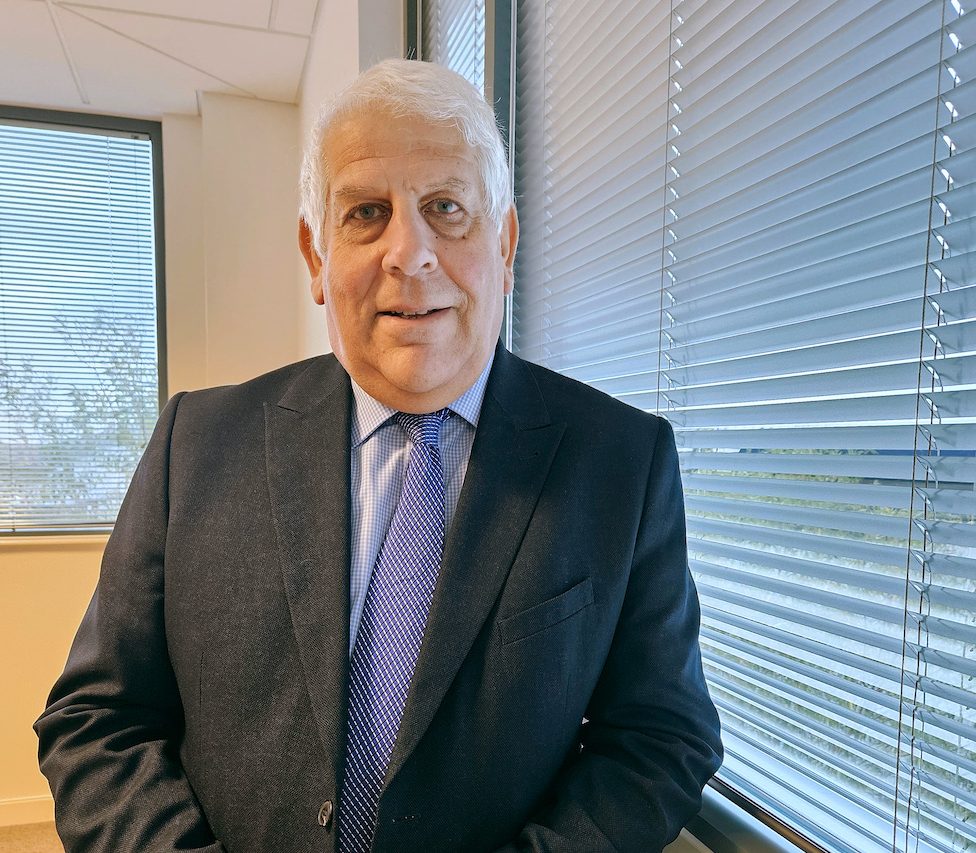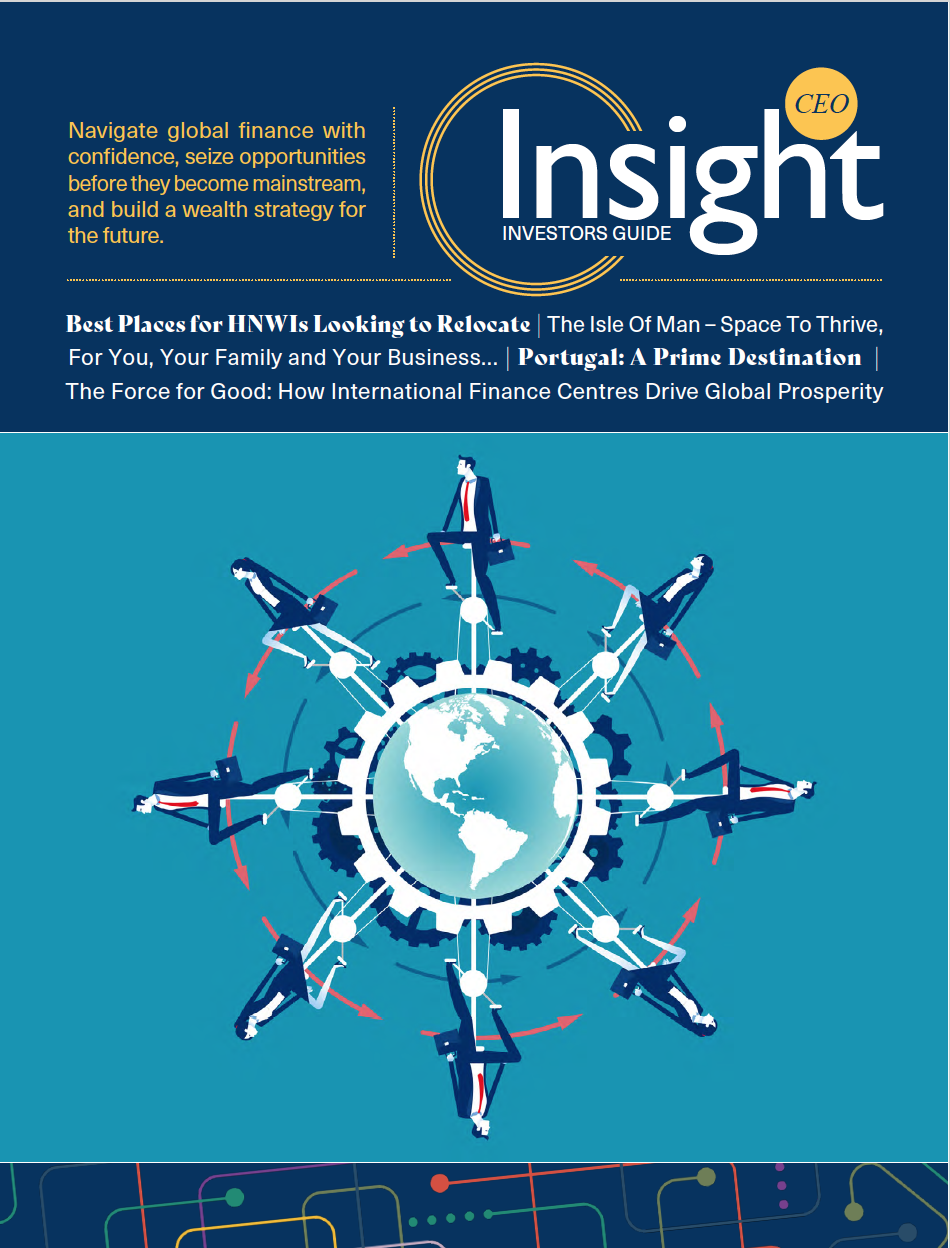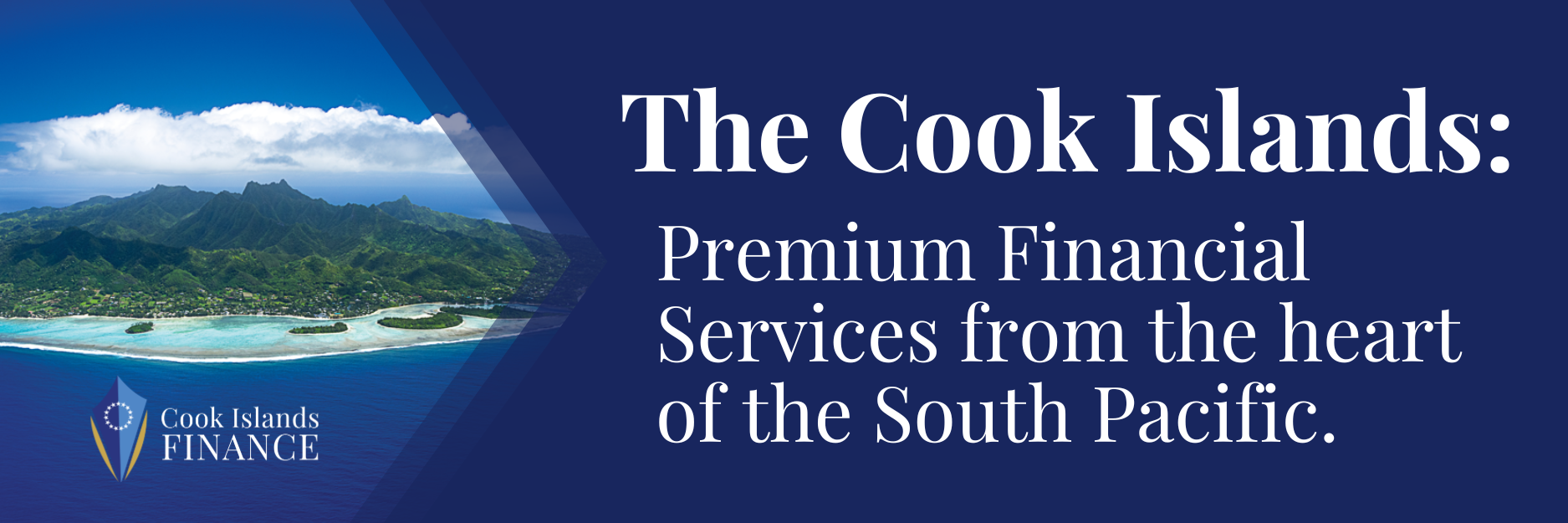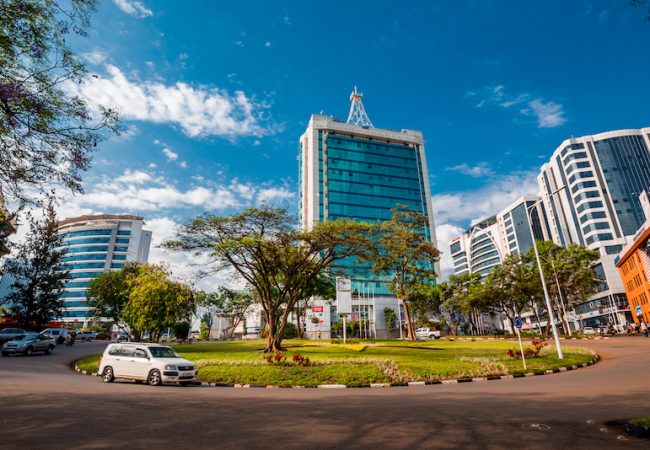Investors Guide to Africa s’entretient avec Nick Barigye, directeur général de Rwanda Finance Limited (RFL), l’agence chargée de développer et de promouvoir le Centre financier international de Kigali (KIFC) et de positionner le Rwanda comme une juridiction financière privilégiée pour les investissements en Afrique.
IGTA : La vision du Centre financier international de Kigali est de catalyser le développement socio-économique du Rwanda en libérant des capitaux. Dans quelle mesure cette vision est-elle en train de se réaliser ?
Nick Barigye : Notre Vision 2050 définit le plan stratégique à long terme pour que le pays devienne un pays à revenu moyen supérieur d’ici 2035 et un pays à revenu élevé d’ici 2050. Pour y parvenir, nous devons être innovants et attractifs pour les investisseurs locaux, régionaux et internationaux. Le Centre financier international de Kigali (KIFC) représente les aspirations du Rwanda et joue un rôle crucial dans le déblocage de nouveaux investissements pour faciliter le potentiel économique du Rwanda.
Au cours des deux dernières années, nous avons travaillé dur pour développer l’infrastructure et le cadre réglementaire nécessaires pour attirer les institutions financières, tant nationales qu’internationales ; pour améliorer la facilité de faire des affaires au Rwanda ; pour diversifier les services financiers offerts ; et pour renforcer le cadre de conformité afin de garantir la stabilité et l’intégrité du secteur financier. Ceci est crucial pour gagner la confiance des investisseurs et des institutions.
Jusqu’à présent, nous avons attiré plus de 100 structures d’investissement, y compris des holdings, des fonds et des FinTechs, entre autres, pour qu’elles se domicilient dans le pays. Cela a contribué à la croissance de l’économie rwandaise de 9,2 % au premier trimestre 2023, après une augmentation de 8,2 % en 2022 (The World Bank, 2023).
IGTA : Quelles réformes visant à faciliter le commerce et l’investissement, à renforcer le statut du Rwanda en tant que juridiction transparente et conforme, et à accroître la facilité de faire des affaires, vous enthousiasment le plus et pourquoi ?
Nick Barigye : Au cours des deux dernières années, 19 lois ont été promulguées, 17 accords de prévention de la double imposition (DTAA) ont été signés et nous avons formé d’importantes alliances stratégiques avec sept centres financiers internationaux différents, dont Jersey Finance, Qatar IFC, Casablanca IFC, Astana IFC, et trois IFD, dont British International Investment.
Le chemin parcouru jusqu’à présent a été remarquable, et nous avons été classés en tête des nations africaines dans des enquêtes internationales. En 2020, le Rwanda était deuxième dans l’indice de facilité de faire des affaires de la Banque mondiale et quatrième en Afrique subsaharienne dans l’indice de compétitivité mondiale du Forum économique mondial (WEF). En 2021, nous avons été reconnus comme le premier pays à faible revenu le plus innovant par l’indice mondial de l’innovation.
Le Centre de renseignement financier (FIC) nouvellement créé a également rejoint la liste des régulateurs établis mandatés pour garantir l’intégrité des systèmes financiers du Rwanda. Aux côtés de la Banque nationale du Rwanda, de l’Autorité des marchés de capitaux et du Conseil de développement du Rwanda, le FIC assurera une surveillance financière efficace et le respect des exigences du Groupe d’action financière sur le blanchiment de capitaux (GAFI).
IGTA : Que pouvez-vous nous dire sur la gamme d’incitations en place destinées à stimuler l’investissement direct étranger ?
Nick Barigye : Pour être une plaque tournante unique, capable de faciliter les investissements internationaux, les transactions transfrontalières et les opportunités d’expansion commerciale, nous avons fourni une base propice à la structuration de divers véhicules d’investissement.
En renforçant nos lois contre le blanchiment d’argent et le financement du terrorisme, nous avons instauré un haut niveau de confiance parmi les investisseurs.
Certaines des nouvelles lois fiscales ont également fourni des incitations en termes de liberté de rapatriement des bénéfices et des capitaux à travers la région. En conséquence, nous avons constaté un regain d’intérêt de la part des investisseurs régionaux et africains à la recherche de domiciles financiers alternatifs pour leurs investissements sur le continent.
L’année dernière, le Rwanda a été l’un des huit premiers pays à commencer à commercer dans le cadre des conditions préférentielles de l’initiative de commerce guidé de l’AfCFTA. Nous sommes également membres de l’Association des bourses d’Afrique de l’Est (EASEA), qui offre des possibilités de cotation croisée aux investisseurs institutionnels régionaux, dans toute la région et au-delà.
Nous avons construit un secteur des services financiers solide et dynamique, soutenu par des innovations basées sur la fintech, ce qui est primordial pour élargir et diversifier les offres de produits financiers et de structures juridiques, comme les investisseurs qui cherchent à créer des fonds d’investissement et des structures ad hoc pour financer des projets régionaux.
KIFC comprend également que la durabilité est un facteur clé pour être compétitif, c’est pourquoi nous développons des pistes pour les investissements axés sur l’environnement, le social et la gouvernance (ESG). Nous assistons déjà à une accélération de la transition vers un financement vert et durable, puisque nous avons récemment rejoint les Centres financiers pour la durabilité. L’année dernière, lors de la COP27, le Rwanda s’est présenté comme une destination idéale pour les investissements verts et a lancé la feuille de route décennale pour le financement durable, parallèlement à la facilité d’investissement vert du gouvernement, “Ireme Invest”.
En reconnaissance de nos réformes pour l’adaptation au climat et l’atténuation de ses effets, en 2022, le Rwanda a été l’un des trois premiers pays et le premier pays africain à bénéficier d’un financement dans le cadre du Fonds pour la résilience et la durabilité (RST) du Fonds monétaire international.
IGTA : Comment la diversification économique actuelle du Rwanda se manifeste-t-elle le mieux ?
Nick Barigye : Le Rwanda a été l’un des pays les plus performants en matière de croissance économique au cours des deux dernières décennies, avec un taux de croissance annuel du PIB de 7,1 % en moyenne et des secteurs de pointe dans les domaines de l’énergie, de l’agriculture, du commerce et de l’hôtellerie, ainsi que des services financiers.
La création du KIFC s’inscrit dans la stratégie de diversification économique du pays, dont l’un des objectifs à long terme est de faire progresser notre secteur financier en introduisant de nouveaux services et produits.
En offrant des incitations fiscales aux FinTechs avant-gardistes et en promulguant des lois essentielles pour établir un cadre réglementaire favorable aux entreprises, le Rwanda a vu un nombre croissant de licornes, telles que Chipper Cash, choisir Kigali comme base pour consolider leurs opérations régionales.
Plus tôt cette année, en partenariat avec Elevandi, nous avons accueilli le tout premier événement phare de la fintech en Afrique, qui a rassemblé les plus importants décideurs africains et mondiaux de la fintech, solidifiant l’aspiration du Rwanda à devenir le “foyer de la FinTech en Afrique”.
Cependant, nous savons que les économies individuelles peuvent être trop petites pour accueillir des licornes de la fintech ou d’autres grandes entreprises, il est donc crucial que les gouvernements africains travaillent ensemble sur l’intégration du marché pour faciliter la croissance de leur secteur de la fintech.
Grâce à la stratégie quinquennale du Rwanda en matière de fintech, nous voulons maximiser le potentiel de la fintech pour la croissance économique et la transformation socio-économique en 1. positionnant le Rwanda comme une preuve de concept pour la fintech et 2. en établissant le Rwanda comme une rampe de lancement pour la fintech.
Le gouvernement pousse fortement le Rwanda à passer à une économie sans numéraire et à parvenir à une inclusion financière à l’échelle nationale. C’est pourquoi le KIFC met en place un environnement réglementaire favorable à l’innovation qui attire les fonds d’investissement et le capital-risque pour stimuler le secteur de la fintech qui connaît une croissance rapide.
IGTA : Le Rwanda est-il sur la bonne voie pour devenir un centre financier panafricain ?
Nick Barigye : Absolument. Le Rwanda a bénéficié d’une période de stabilité politique, a mis en œuvre des réformes pour améliorer l’environnement des affaires, a investi dans le développement des infrastructures, y compris la construction de districts financiers modernes et de pôles technologiques, a tiré parti de la technologie et de l’innovation pour favoriser l’inclusion financière et a participé activement à l’intégration économique régionale.
Nous avons investi dans des infrastructures d’aviation de classe mondiale, faisant de Kigali une plaque tournante du transport aérien en Afrique grâce à sa situation géographique et à ses installations de conférence de haute qualité. Aujourd’hui, le Rwanda est considéré comme une plaque tournante mondiale pour les conférences. Ces facteurs, associés à des investissements significatifs dans les TIC et l’innovation, ainsi qu’à l’appartenance à trois blocs économiques régionaux, signifient que nous sommes sur la bonne voie pour devenir un centre financier panafricain.
Le renforcement de la stature du Rwanda en tant que centre financier panafricain conduira à la création d’emplois dans divers secteurs, tels que la banque, l’assurance, le droit, la fiscalité, la fourniture de services fiduciaires, la gestion de fonds et les domaines réglementaires, tout en améliorant les compétences de la main-d’œuvre locale.
Récemment, le KIFC a été classé troisième en Afrique et deuxième en Afrique subsaharienne dans le Global Financial Centres Index (GFCI) et a été classé parmi les 15 premiers centres mondiaux, ce qui devrait prendre de l’importance à l’avenir.
IGTA : Quels progrès ont été réalisés dans l’augmentation de la représentation féminine dans le secteur de la fintech et pourquoi pensez-vous que cela contribuera à faire progresser l’inclusion financière au Rwanda ?
Nick Barigye : La fintech a le potentiel de révolutionner les économies africaines en augmentant l’inclusion financière, en stimulant la croissance économique et en créant de nouveaux emplois et de nouvelles opportunités commerciales.
En Afrique, la part des entreprises fintech fondées par des femmes est deux fois supérieure à la moyenne mondiale mais, malheureusement, ce chiffre n’est encore que de 3,2 % – selon Findexable, une société d’études de marché qui suit la diversité des genres. De plus, alors que 30 % des professionnels de la technologie en Afrique subsaharienne sont des femmes, la part des femmes dans la fintech reste bien inférieure à la moyenne du secteur. Si le secteur veut continuer à étendre et à renforcer l’accès aux services financiers et au crédit, il doit non seulement servir les femmes, mais aussi être façonné par elles.
Le Rwanda est un leader régional en matière d’égalité des sexes, et nous avons constaté une augmentation considérable du nombre de femmes propriétaires d’entreprises individuelles au cours des cinq dernières années, ce qui témoigne de la croissance de l’entrepreneuriat féminin au Rwanda. Mais, malgré les progrès en matière d’inclusion financière que la fintech a permis, plus des trois quarts des femmes rwandaises n’ont toujours pas accès à un compte bancaire.
Le Rwanda est déterminé à combler le fossé entre les hommes et les femmes en élaborant des politiques financières intégrant le genre et en créant des lignes directrices pour les banques et les organisations de microfinance afin d’aider à concevoir des produits qui répondent aux besoins des femmes.
L’éducation financière est également très importante, c’est pourquoi nous travaillons avec nos partenaires pour autonomiser les femmes et les éduquer sur les services financiers numériques, comme la création d’un fonds panafricain pour soutenir les secteurs de la technologie et de l’éducation.
Notre objectif est de parvenir à l’égalité d’accès d’ici 2027.



























